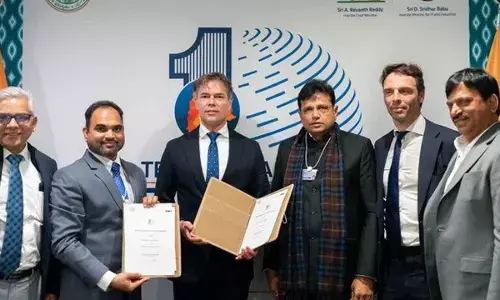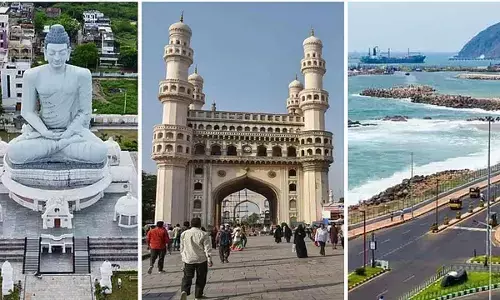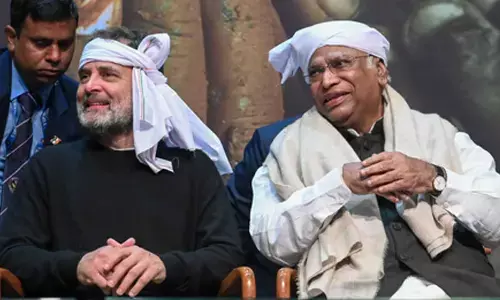Will a year gap in Covid times benefit you?

Will a year gap in Covid times benefit you?
A free year, with no school, work, or to-do list; this is the general idea of a gap year for the Indian sensibility
A free year, with no school, work, or to-do list; this is the general idea of a gap year for the Indian sensibility. A fairly common practice abroad, is this what a gap really means? Does putting your academic journey on hold for an entire year benefit you?
In international academic parlance, a gap year is a voluntary break students take -- usually while transitioning from one academic stage to the next -- to break the monotony of 14 years of continuous schooling. It is far from our presumed idea of a year-long vacation, it is time well spent travelling, building professional readiness, or community service, a time for students to re-calibrate their energies and goals.
This concept was turned on its head with the events of 2020; a year that will go down as being one of the most disruptive yet globally unifying eras in recorded history. The pandemic has led many to call 2020 an unsought gap year, with over 320 million students being affected by the changes made within the national education machinery.
But with schools and colleges going virtual and many countries closing their borders, there has been a foundational shift in how students and parents are treating the academic year. Without access to the in-person learning experience of an international degree, many foreign applicants have opted to defer their admission to the 2021-2022 school year or beyond. In fact, January 2021 has already seen over 10.9 lakh Indian students enrolled in universities abroad -- a number expected to rise this year with students who had deferred their 2020 admits or were awaiting a relaxation in pandemic restrictions around the world.
As one of the aspiring students looking to pursue a degree abroad, consider this: if you are not using the time afforded by the pandemic to upskill yourself, you could be wasting precious opportunities.
The linear academic journey is not the only one you will go on. As modern students progress from grade to grade, there is a greater emphasis placed on holistic development. You now need a slew of skills to match those of your contemporaries, including soft skills, technical competency, real-world experience via internships or projects, research chops, social involvement, entrepreneurship -- an understanding of what life entails outside the classroom. Gap years are encouraged in schools all around the globe.
Sure, Barack Obama's daughter Malia did go to Harvard, but she took a much-needed gap year before attending it, visiting Bolivia and Peru and interning at a media company. In Singapore, young male students must enroll in mandatory military service at the age of 18. This active duty lasts for 2 years, a significant amount of time to build mental fortitude and learn key life skills without the protective umbrella of life at home. When these students join a classroom, they are invariably more independent and equipped to forge their own path than their peers who may not have had the same experience. These practices of breaking away from a monotonous structure are normalised elsewhere, so why not in India?
We may still be stuck in the past. A pedagogical system that focuses heavily on rote learning does not provide ample exposure to real-world interactions and initiative-taking. Parents and students need to work together to instill a culture conducive to the gap year, particularly now when opportunities are ripe and there is potential for so much progress, even if it is digitally-based. Nothing has really stopped -- internships are now virtual, the online course industry is booming, and people are networking fiercely on social media platforms. What's more, the new National Education Policy 2020 allows students to opt for multiple entry and exit points during their degree, where they can save the credits they earn throughout the year. This allows for an easier, institutionally approved pathway for a break from their programme.
Taking the time to cultivate multiple interests and having the initiative and maturity to propel one's learning experiences is vitally important to maximizing the college experience -- and a gap year fulfils this purpose. A student who takes a gap year needs to be very clear on their interests. Make plans for your year, even if some are tentative, to find avenues for personal progress and upskilling. Setting a routine and making smaller goals instead of one mammoth end-of-the-year dream is a more realistic way of getting more done with the time you have.
Speak to a mentor and connect regularly with other professionals, either from industry or university, to ensure you are clear about the opportunities they could help with. Understand how platforms like LinkedIn work and network furiously! You may find gaps in your profile or learning through your interactions with others. One of our students with an average academic background took a gap year, wherein they joined an IT company, liaised with their work mentors and understood the latest developments and software in their sector.
The accessibility to new information that this provided allowed them to write more mature essays and become more informed and confident -- they soon welcomed a 100 per cent scholarship from US university. Colleges in the West are certainly empathetic to gap year students, provided they demonstrate learning, motivation, focus, and determination. The pandemic is not an isolated event; it has changed life for people everywhere. But if students in different parts of the world are coming out stronger, so can we. In this endeavour to become globally mindful and gain clarity on what you can do next in life, academia, or your career, plan a year that fills the gap in your profile, not one that creates it.











